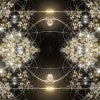
Theory can sort order from chaos in complex quantum systems
Theory can sort ‘order’ from ‘chaos’ in complex quantum systems.

Theory can sort order from chaos in complex quantum systems
Theory can sort ‘order’ from ‘chaos’ in complex quantum systems.
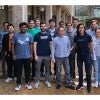
Rice team begins ambitious quantum entanglement research
A Rice research team has begun an ambitious three-year project to see quantum entanglement among billions of particles in a solid material thanks to a $1.2 million grant from the Keck Foundation.
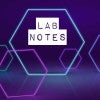
Rice joins neutrino megaproject. Engineering launches energy transition initiative. McHugh lands cancer research grant. Keck Foundation funds quantum research. West named Cottrell Scholar.

Naomi Halas named University Professor
Rice University has promoted nanotechnology pioneer Naomi Halas to its highest academic rank, University Professor. Halas, a 33-year member of Rice’s faculty, becomes only the 10th person and second woman to earn the title in Rice’s 111-year history.
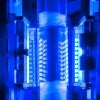
Rice lab’s catalyst could be key for hydrogen economy
A light-activated catalyst efficiently converts ammonia into clean-burning hydrogen using only inexpensive raw materials.
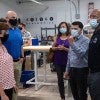
Rice U. technology startup Syzygy Plasmonics raises $76 million in latest funding round
Syzygy Plasmonics, a Houston-based startup fueled by technology developed at Rice University, has announced $76 million in Series C financing led by Carbon Direct Capital — one of the largest rounds of funding for a venture spun out of a Rice lab.
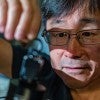
Rice wins Moore Foundation grant for quantum vacuum research
Junichiro Kono’s lab will study how matter and quantum vacuums become entangled thanks to a new grant from the Gordon and Betty Moore Foundation.
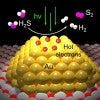
New catalyst can turn smelly hydrogen sulfide into a cash cow
Rice engineers and scientists and collaborators have discovered an efficient, one-step process for converting hydrogen sulfide gas into clean-burning hydrogen fuel.
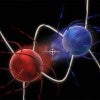
Physicists use ‘electron correlations’ to control topological materials
Physicists from Rice and other institutions have discovered a way to switch topological states on and off.
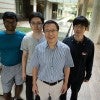
Physicists demo method for designing topological metals
Rice physicists and collaborators have demonstrated a new method for predicting whether metallic compounds are likely to host topological states that arise from strong electron interactions.

Interwoven: Charge and magnetism intertwine in kagome material
Rice physicists have discovered a quantum material where electrons engage in a collective dance that appears to be governed by both their electronic and magnetic natures.
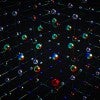
SU(N) matter is about 3 billion times colder than deep space
Physicists from Rice and Kyoto University are using the universe’s coldest fermions to explore quantum magnets.

Smalley-Curl Institute rewards students’ summer research
The Smalley-Curl Institute held its annual Summer Research Colloquium Aug. 5.
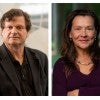
Halas, Nordlander win prestigious Eni Energy Transition Award
Rice’s Naomi Halas and Peter Nordlander have won the prestigious 2022 Eni Energy Transition Award.
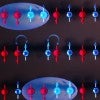
Rice lab’s quantum simulator delivers new insight
A Rice University quantum simulator is giving physicists a clear look at spin-charge separation, a bizarre phenomenon in which two parts of indivisible particles called electrons travel at different speeds in extremely cold 1D wires. The research is published this week in Science and has implications for quantum computing and electronics with atom-scale wires.